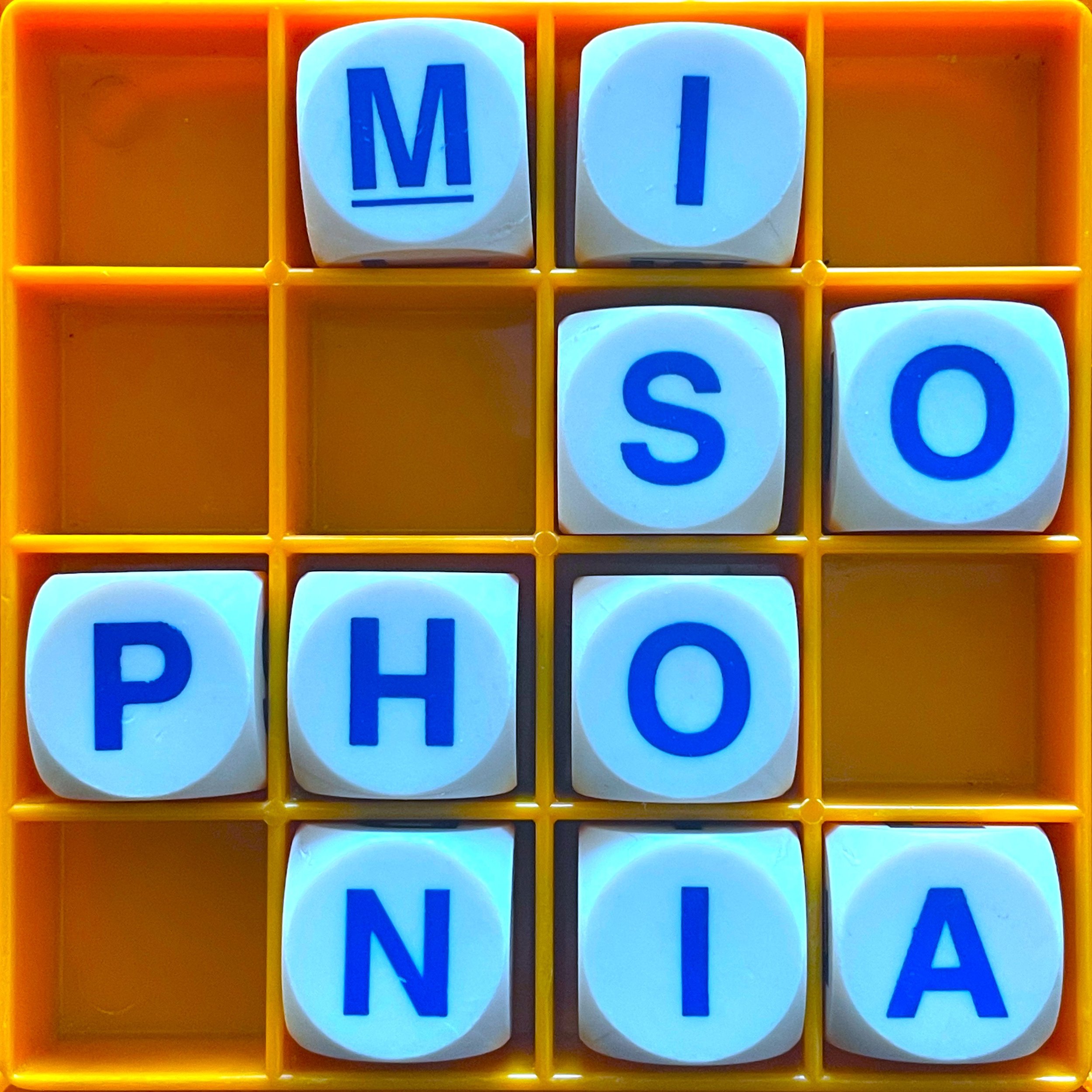JANE GREGORY: Misophonia is an extreme reaction to certain sounds and not an aversion to all sounds, but an extreme reaction to specific sounds. And the most common sounds are eating and heavy breathing and kind of repetitive sniffing and coughing and things like that. Which are also sounds that most people don't like the sound of, but people with misophonia will get a much more intense reaction, so it might be more like a fight or flight kind of response, a feeling of anger or panic as opposed to feeling annoyed or irritated or disgusted by the sound. And there's a bit more to it in terms of what goes on around the sounds as well. So it might be feeling trapped or helpless when they can't get away from these sounds. It might be listening out for sounds, even when there aren't any, or continuing to listen to see if the sound is still going, even if it's stopped. And doing things to organize your life around sounds or to cope with sounds. when they happen. So most people who don't like a sound will just deal with it. For people with misophonia, they have to do things to not be able to hear it or to be able to cope with their reactions to it.
HZ: Rather than just grimacing.
JANE GREGORY: Exactly. I mean, there's also some grimacing, but probably also some glaring.
Allusionist Eclipse+ transcript
LAUREN MARKS: Which is an acquired language disorder that comes after you have already honed all your language skills. It just leaves your language impoverished, depending on what type you have. It makes words inaccessible to you.
HZ: At that time, though, Lauren didn’t know that she used to have a full vocabulary and now didn’t, she used to be able to read and now couldn’t, she used to have an internal monologue and now didn’t. And ignorance really was bliss.
LAUREN MARKS: I couldn't have been any more peaceful and satisfied.
HZ: She didn’t have an inner voice telling her to panic - she didn’t have the vocabulary to panic. So she didn’t panic.
LAUREN MARKS: Knowing what you don't know is a really big issue with a brain injury. Language is the organ of perception. So if there is an injury to your perception, your perception can be real off. So in my case, with my aphasia, I didn't know how damaged my language was. I really had no idea. I thought that it was just fine.
Read moreAllusionist 20: Baby Talk - transcript
[baby voice] Wook at your widdle face. Who’s a cutie pie? Who’s a cutie pie? Here comes the aeroplane - [cough] [/baby voice]
When you’re talking to a baby, it’s hard to maintain dignity. In fact even the baby, who can’t talk, thinks jigsaws are for eating, and is probably sitting in its own effluvium, is more dignified than you at that point.
But, good news! All those stupid voices, and banal rhetorical questions, are helping the baby to learn language.
Read moreAllusionist 14: Behave - transcript
Thanks to your own brain, words have the capacity to become your worst enemy.
JG: it could just be a random word, something attached to something you know, or something that you happened to be thinking at the time you were feeling awful so it became the word that means something bad.
HZ: No words are safe.
JG: No! Because that part of our mind just mashes things together in different ways, and if it mashes two things together at a time when you’re feeling a certain way, that connection sticks, which is where the therapy comes in - unsticking those things.




